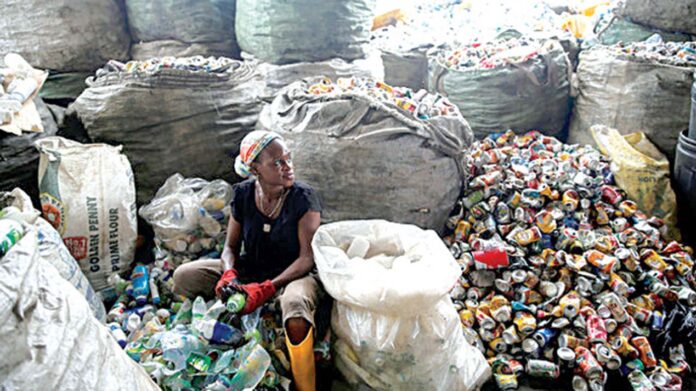A recent research by Nkweauseh Reginald Longfor focused on waste management in 44 sub-Saharan African countries reveals a staggering 95% of landfill sites are unregulated, leading to severe economic and environmental consequences. The uncontrolled disposal of waste, comprising 70% of municipal solid waste in many regions, not only contributes to harmful greenhouse gas emissions but also results in extensive economic damage.
From Crisis to Catalyst: Unveiling the Economic and Environmental Imperatives for Sustainable Waste Management in Sub-Saharan Africa
The Economic and Environmental Impact
In sub-Saharan Africa, 24% of waste is sent to landfills, while the rest is left in open dumps, streets, rivers, and other inappropriate locations. The decomposition of this poorly managed waste releases carbon dioxide, nitrates, and hydrogen sulfides, posing threats to both air quality and water sources. The economic consequences of inadequate waste management were assessed by comparing the ongoing costs across 44 countries until 2060, considering both current practices and more efficient methods like sanitary landfills and anaerobic digestion.
Anaerobic Digestion and Sanitary Landfills
Anaerobic digestion, a natural process utilizing microorganisms to convert organic waste into biogas, particularly methane, emerges as a viable solution. This process has been successfully employed in Europe for two decades, generating electricity, cooking gas, and heat. Sanitary landfills, on the other hand, involve collecting landfill gas, which is approximately 50% methane and 50% carbon dioxide, for various applications. Properly implemented, these technologies significantly mitigate greenhouse gas emissions and offer organic fertilizers as byproducts.
Landfill Gas Offsetting Economic Damage
Capturing methane from waste and converting it into energy not only reduces its harmful impact on the atmosphere but also addresses climate change-related issues such as habitat loss, property damage, disease spread, and soil and water contamination. The research demonstrates that the cost of implementing sanitary landfill and anaerobic digestion technologies is only a fraction of the economic damage caused by methane emissions. Furthermore, methane derived from organic waste presents a renewable energy source, reducing reliance on fossil fuels and subsequently lowering energy costs while enhancing energy security.
Calculating Future Damage
The study predicts that if current waste disposal practices persist, the economic damage from methane emissions in sub-Saharan African countries could reach $6.7 billion by 2060. This estimate, doubling every decade from 2025 to 2060, highlights the urgency of transitioning to sustainable waste management practices.
Countries at Risk
Certain countries, such as Angola, Mauritius, and Cape Verde, heavily relying on landfills (70%, 90%, and 91% full, respectively), face significant economic damage. Angola, for instance, could witness economic damage rising from $153 million in 2012 to a projected $1.7 billion in 2060 due to landfill reliance. Additionally, nations with growing populations and economies, including Ethiopia, Nigeria, the Democratic Republic of Congo, South Africa, Tanzania, Madagascar, Mozambique, and Uganda, risk economic losses exceeding $2 billion each by 2060 without improved waste management practices.
The Call for Sustainable Solutions
To address this looming crisis, all African countries must prioritize waste reduction, reuse, recycling, and energy recovery. These initiatives not only promote public health but also contribute to a green, circular economy. Importantly, policies encouraging private investment in clean waste management practices can lead to economic, social, and environmental benefits. Sub-Saharan African countries have an opportunity to turn their waste challenges into a sustainable energy solution, saving billions in future damages and fostering a more prosperous future.
















 The African Research (AR) Index is a comprehensive scholarly directory and database focused explicitly on journal publishers that publish and disseminate African research.
The African Research (AR) Index is a comprehensive scholarly directory and database focused explicitly on journal publishers that publish and disseminate African research.

